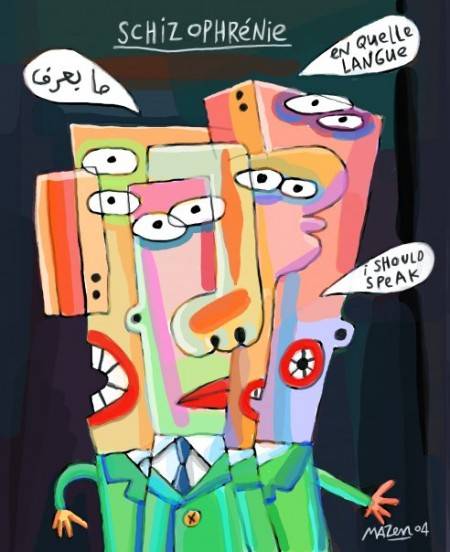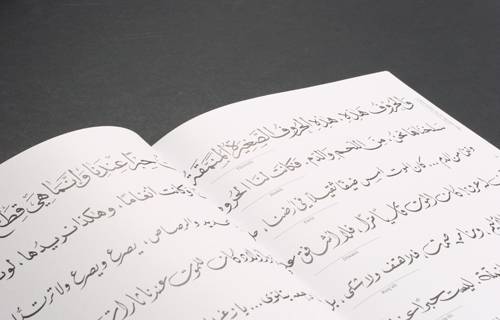Seven Language Quirks Common to Most Lebanese
Let’s face it, beyond the bittersweet and stereotypical charm of our “hi, kifak, ça va” culture, we are a nation with terrible grammar. And who can blame us? The constant back and forth between French, English, and Arabic inevitably leads to some confusion. Here, we’ve compiled a list of seven common quirks and verbal idiosyncrasies that most Lebanese people are afflicted with.
1. Let’s start by debunking the myth that all Lebanese people speak Arabic, French, and English.

(Photo Credit: Mazen Kerbaj).
Although ours is indeed a multilingual country, many people only know a handful of words from each language and still claim to be fluent in all three. And this often leads to what we like to refer to as sloppy speech. Example: starting a sentence in one language and finishing it in another.
2. Expressions and proverbs that get lost in translation.
And then there’s the widespread “out of the blues,” for which there are no known explanations.
3. Grammatical confusion.
Most common example, especially among native Arabic speakers: using “for” instead of “about,” and vice versa.
4. Phonological mistakes.
This happens with native Arabic speakers who find it difficult to distinguish between the letters ‘p’ and ‘b’. Or, more generally, not knowing how to pronounce a word in English because you’ve only ever seen it in writing but never had a chance to say it out loud.
Broasted/Proasted Chicken: welcome to any snack joint I’ve ever been to in Beirut. (If it’s under 6,000 LL per meal, no one cares about how to spell it.)
5. The use of made-up words
These have somehow subliminally crept their way into the Lebanese dictionary. Like “charraj” (in lieu of charge), “talfan” (make a phone call) or “sayyav” (save).
6. The verbal idiosyncrasies we no longer notice.
More specifically the ya3nehs/ennos/3refte kif/tu as compris? that punctuate our sentences no matter what language we speak in.
7. And finally, unintentional emulation.
Peer pressure and repetition perpetuate grammatical confusion. Hear a word enough times and you’ll end up using it yourself, regardless of its grammatical shadiness.
Language is tightly enmeshed with culture, and these idiosyncrasies have become intrinsic to who we are as Lebanese. Endearing for some, irritating for others, the way we speak is irrevocably quirky, borderline schizophrenic, and grammatically confusing. Deal with it.




